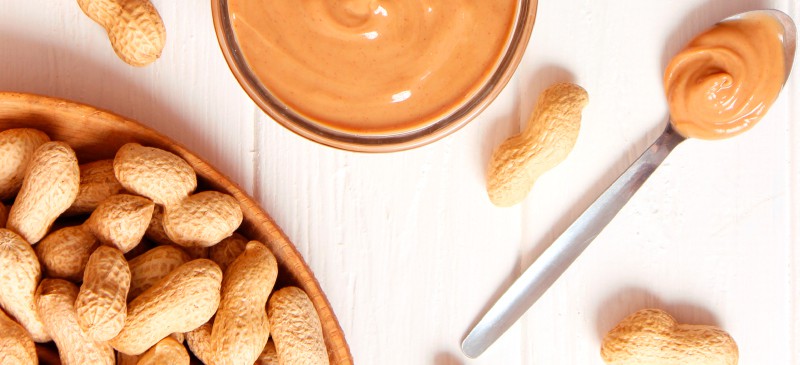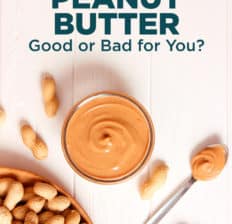This Dr. Axe content is medically reviewed or fact checked to ensure factually accurate information.
With strict editorial sourcing guidelines, we only link to academic research institutions, reputable media sites and, when research is available, medically peer-reviewed studies. Note that the numbers in parentheses (1, 2, etc.) are clickable links to these studies.
The information in our articles is NOT intended to replace a one-on-one relationship with a qualified health care professional and is not intended as medical advice.
This article is based on scientific evidence, written by experts and fact checked by our trained editorial staff. Note that the numbers in parentheses (1, 2, etc.) are clickable links to medically peer-reviewed studies.
Our team includes licensed nutritionists and dietitians, certified health education specialists, as well as certified strength and conditioning specialists, personal trainers and corrective exercise specialists. Our team aims to be not only thorough with its research, but also objective and unbiased.
The information in our articles is NOT intended to replace a one-on-one relationship with a qualified health care professional and is not intended as medical advice.
Peanut Butter Nutrition Facts: Is It Good or Bad for You?
March 18, 2022

You’ve probably been eating it since you were a kid. It’s a staple in most American kitchen pantries, but many people wonder: Is peanut butter bad for you?
This is actually a common question, and there are some misconceptions when it comes to peanut butter nutrition facts. The answer is…yes and no. It depends on the quality, how much you consume and what you eat it with.
Sometimes peanut butter can be a metabolism death food, but then again, it’s a popular ingredient in several healthy snack ideas. To cut through the confusion, let’s take a look at the potential benefits of peanut butter, along with the drawbacks.
Then you’ll be able to add peanut butter to your diet in a healthy, yet enjoyable way.
Peanut Butter Nutrition Facts
Peanut butter is a good source of protein and micronutrients, including magnesium, phosphorus, zinc and B vitamins. On the flip side, it’s relatively high in calories, has some saturated fat, contains some sugar and products with added salt have a good amount of sodium.
Two tablespoons (about 32 grams) of smooth style peanut butter with salt contains roughly the following:
- 188 calories
- 6.4 grams carbohydrates
- 8 grams protein
- 16 grams fat
- 1.9 grams fiber
- 0.5 milligrams manganese (23 percent DV)
- 4.3 milligrams niacin (21 percent DV)
- 2.9 milligrams vitamin E (14 percent DV)
- 49 milligrams magnesium (12 percent DV)
- 115 milligrams phosphorus (11 percent DV)
- 0.2 milligrams vitamin B6 (9 percent DV)
- 0.2 milligrams copper (8 percent DV)
- 208 milligrams potassium (6 percent DV)
- 0.9 milligrams zinc (6 percent DV)
- 23 micrograms folate (6 percent DV)
- 147 milligrams sodium (6 percent DV)
- 0.3 milligrams pantothenic acid (3 percent DV)
- 1.8 micrograms selenium (3 percent DV)
- 0.6 milligrams iron (3 percent DV)
Is Peanut Butter Good For You?
There are some potential health benefits of peanut butter, especially if you eat a high-quality product without added ingredients, like sugar, salt or preservatives.
1. Improves Satiety
Because it provides protein, fat and fiber, peanuts and other nuts help improve satiety, so you may feel satisfied for a longer period of time after eating a meal or snack with peanut butter. When consumed in moderation, peanut butter may support weight loss and maintenance.
A review published in the Journal of Nutrition found that when nuts were included in adult diets, it improved weight loss. Researchers concluded that when consumed in moderation, nuts enhance palatability and nutrient quality without posing a threat to weight gain.
2. Rich in Micronutrients
Peanut butter provides a range of micronutrients that offer a range of health benefits. It’s a good source of:
- manganese
- magnesium
- phosphorus
- niacin
- vitamin B6
- zinc
- folate
- vitamin E
These vitamins and minerals support cardiovascular health, reduce inflammation, promote bone health and support healthy cognitive function.
Magnesium, for example, helps support healthy blood pressure, ease or prevent migraines, relieve PMS symptoms, and normalize blood sugar levels.
In addition, research indicates that niacin, or vitamin B3, helps prevent conditions like high LDL cholesterol, arthritis and diabetes.
3. Good Source of Protein
Research shows that when you’re bodybuilding or engage in regular exercise, getting high-protein ingredients into your meals every day is important. Nut butters are some of the best plant-based foods for a quick boost of protein before or after a workout.
Peanut butter nutrition is also a source of calories, or energy, that is used by the body to power you through an intense session.
In addition to their health benefits for exercise and muscle recovery, plant-based proteins help protect us against heart conditions, reduce inflammation, aid weight loss and promote longevity.
4. Helps With Blood Sugar Management
A 2021 study published in the Journal of Nutritional Science found that among overweight prediabetic adults, a nut-based snack product is a healthier alternative to a cereal-based product with the same calorie count.
The nut-based product causes a lower glycemic response, even in high-risk, overweight and prediabetic adults, according to the study.
Why Some Is Unhealthy
While there are some health benefits of eating peanut butter in moderation, there are some downsides to keep in mind before you get that spoon ready. Here’s a breakdown of the potential drawbacks:
1. Too Much Omega-6 Fat
For starters, most Americans get way too many omega-6 fats in their day-to-day diets and not enough omega-3 fatty acids. Remember, omega-3 fats help reduce inflammation, whereas too many omega-6 fats cause inflammation.
Peanut butter is high in omega-6 fats and low on omega-3 fats, so that can cause an imbalanced ratio, especially if its consumed in excess.
A 2002 study conducted by the Center for Genetics, Nutrition and Health concluded that “Western diets are deficient in omega-3 fatty acids, and have excessive amounts of omega-6 fatty acids compared with the diet on which human beings evolved and their genetic patterns were established.”
The ratio is often as high as 20:1 omega-6 fats vs. omega-3 fats, which is astounding considering an ideal healthy ratio is close to 2:1. According to the study:
Excessive amounts of omega-6 polyunsaturated fatty acids (PUFA) and a very high omega-6/omega-3 ratio, as is found in today’s Western diets, promote the pathogenesis of many diseases, including cardiovascular disease, cancer, and inflammatory and autoimmune diseases, whereas increased levels of omega-3 PUFA (a low omega-6/omega-3 ratio) exert suppressive effects.
In addition, too many omega-6 fats can contribute to:
- asthma
- type 2 diabetes
- obesity
- irritable bowel syndrome
- metabolic syndrome
- macular degeneration
- and more
2. Peanuts Often Contain Mold and Cause Allergies
The second issue is that most peanuts are grown on the ground. They get very moist, and a lot of them contain mycotoxins or mold — and mold also leads to other health issues.
Mold presence is one factor that causes food allergies or inflammatory immune reactions from these types of foods.
3. It’s High in Calories and Fat
Peanut butter spread on an apple or sprouted bread is considered a healthy snack choice but only when you stick to smaller amounts and use a high-quality brand. Remember that two tablespoons has over 180 calories, so a quick snack can turn into a high-calorie moment without you even realizing it.
How to Consume It Healthily
To consume peanut butter for its health benefits, here are some tips:
1. Buy Organic
First, when you buy peanuts, make sure you buy a certified organic brand and, ideally, a type of a peanut called Valencia or Jungle. These are typically not grown in the moisture of the ground. They’re usually grown in bushes off the ground or higher up, and that eliminates the issue with mold.
In addition, Valencia nuts contain monounsaturated fats that lower triglycerides, and they have all nine essential amino acids and the antioxidant resveratrol. Resveratrol is a powerful antioxidant that fights free radical damage produced during everyday bodily functions, such as eating and exercise.
2. Consume with Omega-3 Foods
The second thing that can actually make peanut butter healthy is to consume it with omega-3 fats. You can add in a little bit of beneficial flaxseed oil or take an omega-3 fish oil supplement when you eat peanut butter. This will help you to maintain a healthy omega-6 to omega-3 ratio in your diet.
3. Enjoy in Moderation
Because of its calorie and saturated fat content, enjoying peanut butter in moderation is best. It’s a useful ingredient for family snacks and meals, as long as you don’t overdo it.
Stick to one tablespoon or less per serving.
Related: Is Peanut Oil Good or Bad for Health? Separating Fact vs. Fiction
Risks and Side Effects
If you don’t have a peanut allergy, then eating peanut butter sparingly is considered safe and even healthy.
If you experience any allergy or sensitivity symptoms, like itchiness, hives, congestion, nausea or a tingling sensation, then stop eating peanut butter immediately. Be sure to rule out an allergy before eating it again.
Related: How to Balance Omega 3 6 9 Fatty Acids
Conclusion
- Peanut butter supports and boosts metabolism and fat loss if you consume it in moderation and as part of a proper diet. Because it’s a high-protein snack that provides a range of micronutrients, it’s healthy when consumed properly.
- If you eat peanut butter, buy from a high-quality, organic brand, and make sure you get plenty of omega-3 fats in your diet as well.
- Peanut butter can support weight loss and heart health, improve satiety and muscle recovery, and promote overall health.





